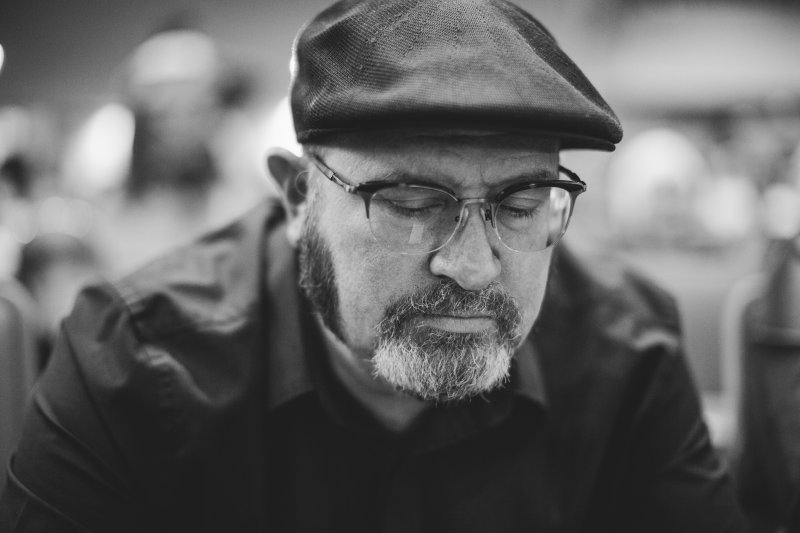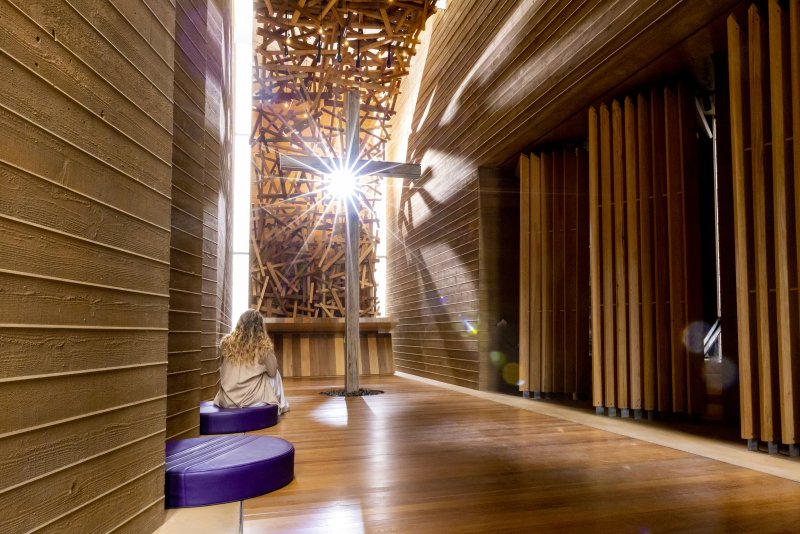
It’s easy to forget how integral Sabbath was only a generation or so ago. Despite being one of the Ten Commandments, the Sabbath command seems to have slipped through the cracks.
Throughout history, Sabbath has been both rigorously observed and heartily debated. For Jews and other sabbatarians (such as the Seventh Day Adventists), the practice of “keeping” or “remembering” the Sabbath has always been an integral part of every week. For almost everyone else, it’s become a lost commandment. What has changed and how? Is Sabbath still important, or did it ebb out of culture for a reason? Let’s start from the beginning – the very beginning.
The Jewish Sabbath
Genesis’ story of creation ends with the seventh day when God rested from the work He had done. To emulate God, the Ten Commandments reserve the seventh day and require humans to do the same. Not only is it “set apart” for rest, but the Sabbath is also “made holy.” God called all things in creation “good,” but He called the seventh day “holy.”
Rabbi Abraham Joshua Heschel wrote The Sabbath, a defining book on the subject:
“In the language of the Bible the world was brought into being in the six days of creation, yet its survival depends upon the holiness of the seventh day. Great are the laws that govern the processes of nature. Yet without holiness, there would be neither greatness nor nature.”
__________
Who are you called to be?
Pursue your purpose at PLNU.
__________
The holiness of Sabbath drove Jews to treat the day as “set apart” (which is what the Hebrew word for holy actually means). It was not merely a day to recharge one’s batteries; it was a day that the rest of the week could not survive without.
The Celebration of Shabbat
For both ancient and modern Jews, a typical Sabbath, or Shabbat, began, and still begins, on Friday afternoon with preparation. Like anticipating the arrival of a special guest, the house is cleaned, the family bathes and dresses in their finest, and the Sabbath meals (for both Friday and Saturday) are made ahead of time so no work has to be done while celebrating Shabbat.
Sabbath was not merely a day to recharge one’s batteries; it was a day that the rest of the week could not survive without.
For modern Jews, Sabbath officially begins at sunset. The two Shabbat candles are lit, representing zachor and shamor, to remember and to observe. The woman of the house then recites a blessing, no later than 18 minutes before the sun sets.
After attending a brief 45-minute evening service, families come home for a festive, leisurely dinner. But before the meal, the man of the house recites Kiddush, a prayer recited over a cup of wine or other liquid (no less than 3.3 ounces) to sanctify the Sabbath. Part of the prayer reads, “You have lovingly and willingly given us Your holy Shabbat as an inheritance, in memory of creation. The Shabbat is the first among our holy days, and a remembrance of our exodus from Egypt.”
Another prayer is recited over two loaves of challah (a sweet, braided bread) before the meal begins. There are no particular requirements on what type of food should be prepared, but to avoid labor, it is usually a stewed or slow cooked meal that can be reheated or kept warm for the remainder of the Sabbath.
After dinner, the birkat ha-mazon is recited, a grace after meals. The family then takes an hour or two to read and talk about the Torah before bed.
On Saturday morning, Shabbat services begin around 9 a.m. and go until about noon. After the service, families say the Kiddush again and enjoy another leisurely meal. By the time the second birkat ha-mazon is said, it is late afternoon. The family studies the Torah, talks, takes a walk, and perhaps plays easy games or takes naps. There will be another light meal before sunset.
Sabbath ends at sundown when three stars can be seen in the sky. Then, it is time for Havdalah, which means separation or division. Blessings are said over spices, wine, and candles. The blessings speak of the separation between the sacred and the secular and between the Sabbath and the rest of the days of the week.
The Details of Rest
At the heart of the Sabbath commandment is the Hebrew word to rest, menuchah. It means to refrain from any productive activity. Over time, rabbinical law elaborated on this word, coming up with 39 categories of work that were to be avoided on the Sabbath.
In the Talmud Tractate Shabbat, 24 chapters of post-biblical, rabbinical law specifically pertaining to Sabbath regulations beyond what is commanded in the Talmud, the notion of rest on the Sabbath is greatly reinforced: One must not touch money, move items from private to public ground, write more than two letters of the alphabet, carry more than the weight of one-half of a dried fig, or drag a stick along the ground on the Sabbath in case the ground be plowed. There are detailed guidelines on how shoes should be put on, “ordinances concerning hairpins and perfume bottles,” and a chapter dedicated to “regulations concerning the tying and untying of knots on the Sabbath.”

All the regulations can be boiled down to two principles: do not create and do not be lord over nature, just for one day a week.
In modern society, we have come to understand the Sabbath as a command to rest – to take a break once a week. And while the day is certainly intended for people to abstain from work, extended travel, spending money, etc., the meaning behind the painstaking regulations is much deeper.
In his book, Sabbath Time, Dr. Tilden Edwards, an Episcopal priest and founder of the Shalem Institute for Spiritual Formation, explains the intention behind the command to rest:
“The principle involved in deciding what is work here is not so much the physical nature of an activity, but its purpose. If its intent signifies human power over nature, if it shows human mastery of the world by the purposeful and constructive exercise of intelligence and skill, then it is meluchah, work, which violates the restful intent of Sabbath time to recognize our dependence on God as ultimate Creator-Sustainer. Here the Sabbath is for God’s sake, a day to be kept holy accordingly.”
True “rest” is about truly giving up control.
Most people believe all they need to do to rest is stop working. For Jews, even thinking about work is considered a breach of the commandment. To be planning out their schedules for the upcoming week even violates the spirit and intent of Sabbath. That is why the Jewish Sabbath requires meticulous planning, requiring comprehensive preparation during the day leading up to it.
True “rest” is about truly giving up control – handing over one day a week so they remember even the other six days aren’t truly theirs. The seventh day signifies a time for humans to relinquish their place at the helm of their lives and to pay homage to that seventh day of creation, when the Creator of the universe Himself rested.
“To observe the seventh day does not mean merely to obey or to conform to the strictness of a divine command,” says Heschel. “To observe is to celebrate the creation of the world and to create the seventh day all over again, the majesty of holiness in time, ‘a day of rest, a day of freedom,’ a day which is like ‘a lord and king of all other days,’ a lord and king in the commonwealth of time.”
The Christian Sabbath
Despite the deep roots of the Jewish Sabbath, the early Christian church was left to grapple with if and how Sabbath would fit into Jesus’ mission for them. Many Christians dismissed Sabbath as too legalistic and irrelevant to the Christian life. Jesus had come to abolish the law, but was it His intent that Sabbath not be a part of Christian practice?
Jesus’ Sabbath
Jesus healed and ministered on the Sabbath day, which brought harsh judgment from His critics. Skip MacCarty addresses those critics, those who challenged Jesus’ authority over the Sabbath, in Perspectives on the Sabbath: Four Views:
“When [His critics] attacked Jesus with their ‘you aren’t keeping the Sabbath right’ accusations based on their manmade regulations, they were accusing the architect and engineer of creation week, the one who had Himself blessed the seventh day and made it holy… He used the occasion to reiterate what had been true from the beginning: ‘The Sabbath was made for man, not man for the Sabbath.’ Their multitudinous, minute restrictions had reversed the formula. He then announced that He was ‘Lord even of the Sabbath’ (Mark 2:28), its very Creator, and thus its rightful Interpreter.”
It is a common view (and perhaps misconception) that because of His nonorthodox treatment of the Sabbath, Jesus abolished the need to observe the seventh day altogether. If He is “Lord even of the Sabbath,” does that mean Sabbath is no more?
“Modern Christians, myself included, have often misread Jesus’ statements on how one should observe the Sabbath as making a statement in the negative regarding whether we should observe a Sabbath,” said Kara Lyons-Pardue, PLNU assistant professor of New Testament. “We have taken Jesus’ liberal interpretation of the law – liberal in doing good – as a dismissal of the Sabbath’s importance. This day of rest, Jesus says, is made for humans (Mark 2:27). Jesus claims Himself as ‘Lord of the Sabbath.’ This lordship does not abolish the Sabbath – for why would Jesus abolish something over which He claims Himself as ruler? – but instead He reinforces its vitality for life. We who call Jesus our ‘Lord’ would do well to open up space – a Sabbath rest – in which we benefit from the Lord of the Sabbath, who seeks to do good, to save life, and to restore health.”
Sabbath Through the Ages
For early Christians, as is still true today, to live by grace meant to not live by the law. So evidence for how the early church treated the Sabbath is varied. It seems the new church celebrated Sabbath as a remembrance of creation, but Jesus’ resurrection lent new meaning to their Sabbaths. Although there is ambiguity surrounding exactly how Christians observed the Sabbath after the formation of the church, one thing is clear – throughout history, there has always been debate among Christians surrounding the practice.

We see first-day worship (Saturday night or Sunday morning, in honor of the day of Jesus’ resurrection) was often observed in conjunction with rest on the seventh day (Saturday). By the second century, Sunday worship was a widespread Christian tradition. Thus, it became known as the “Lord’s Day” and later Sunday, and in many denominations, it supplanted the Sabbath.
In 321 A.D., the “Christianized” Roman Emperor Constantine declared Sunday a day of rest, although it was in honor of the “venerable day of the sun,” hence the name of the day, not of the traditional Sabbath. In 789, Charlemagne made a decree that prohibited “all ordinary labor” on Sunday on the grounds that it violated the fourth commandment.
Until the Reformation, laws regarding action on Sunday were fairly open for discussion since it was agreed that Sunday was an invention of the church, not instituted by God after creation. Martin Luther, in his endeavors to fight the legalism of the Roman Catholic Church, agreed with previous notions that the Sabbath was moot. He even went so far as to say the New Testament repealed the Sabbath command. He believed Christians should have an attitude of worship daily and that the Sunday tradition should be observed with freedom.
Not everyone agreed. For America, Sunday observance of Sabbath is a part of its foundational history. The 17th-century Puritans’ famed voyage to the New World was spurred on by prejudice against their religious views, particularly their more strict observance of the Sabbath.
“The Puritan Sabbath retained much vitality and dominance in the United States until the nineteenth century, when it faced insurmountable challenges including the massive immigrations of people holding a different understanding of life and Sunday,” says Edwards.
By the time of the Enlightenment, Sunday was observed as a day of prayer and perhaps a day to refrain from work. In America, Benjamin Franklin was using his Sundays as a day of study. His open interpretation was not uncommon.
In more modern times, Sabbath has slipped away at a much more rapid pace.
Where Did Sabbath Go?
In a 2003 article for the New York Times, Judith Shulevitz (also author of the book The Sabbath World) writes about her experience being a Jew in Brooklyn in much more recent times, implementing Sabbath practices into her own life, and how the idea of Sabbath is fading away.
“Even after Puritanism lost its hold on American culture, the American Sunday was observed with unusual strictness. In 1831, Alexis de Tocqueville observed with some surprise that few Americans were ‘permitted to go on a hunt, to dance or even play an instrument on Sunday.’ As recently as 125 years ago, you would have been hard pressed to find a museum or library open on Sunday. Eighty years ago, football was considered too vulgar to be played on Sunday. Oldsters remember standing in line at the bank on Fridays to get cash for the weekend; youngsters assume they can withdraw at will. Anyone older than 30 can remember living with the expectation that most stores would be closed on Sunday; the expectation now is that they will be open, and we’re miffed when they aren’t.”
We can still see remnants of the Sabbath that was. A select few banks and businesses reserve Sunday for closed doors and most office jobs require their employees to show up only Monday through Friday. For the most part, our Sundays are now filled with catching up on work, cleaning the house, shuttling the kids to soccer games, and perhaps, fitting in church in the morning. Few of us are locking away our electronic devices, let alone our musical instruments.
The loss of the Sabbath in modern times is one example of our expanded use of time. Since we have access to light, the Internet, and convenience stores 24 hours a day and seven days a week, we can work, shop, or eat any time of the day or night. There is no natural or compulsory rhythm to our days, perhaps not even to our weeks. As our culture began to shift, Sabbath and the idea of a day to completely rest became less and less valued.
The Fading of Sabbath
“Labor laws in the United States and elsewhere in the nineteenth century asserted the right of government to protect laborers from the physical and moral debasement of uninterrupted labor,” says Edwards. “These laws often went further and protected Sunday as a day of shared rest, so that family life and other relationships could be nurtured in a way that would be impossible if days off were staggered. This vision has been breaking down in the face of pressures to open stores for business on Sundays, to sustain industrial production and maintenance, and to view days off in private terms.”
As production increased in the 21st century with the aid of technology and consumerism, a day for corporate rest became more and more inconvenient.
Dr. Kevin Modesto, chair of PLNU’s Department of Sociology and Social Work, asserts that in the 1950s, we experienced a “shifting social understanding of the economy as we moved from a rural to a more urban, consumer society.”
Modesto says we experienced small shifts over time, like waning blue laws or restaurants expanding their hours to include Sundays, which lent to fading Sabbath observance within the larger culture.
In the ’60s, a more dramatic social upheaval occurred and the cultural norms of American society were challenged by a newer generation wanting to act as individuals. With a decreased value of religious or even traditional practices, businesses saw the opportunity and filled the gap by increasing business hours so Americans could shop and eat out on Sundays instead of staying home.
“The culture changed even people who had long held those traditional values,” said Modesto.
The same people who had grown up setting each Sunday aside were abandoning rest on the weekend for all the new opportunities Sundays now afforded.
In the ’80s and ’90s, the typical weekend shifted from restful to unrelenting. Eating out on a Sunday is now a traditional activity for many families. Even the “preparation to worship became harried in itself,” according to Modesto, who says new Sunday practices lead to even more hectic weekends, like commuting to a more distant church instead of investing in a local congregation, or participating in weekend concentrated soccer or Pop Warner leagues.
Does Sabbath Matter?
We are a far cry from watching how we tie knots or locking away our work on the weekends. As Sabbath has disintegrated, our lives have become more accelerated and restless. At creation, before the existence of Pop Warner or restaurants or industrial society, God earmarked one day out of seven. He knew humans would need reprieve – a time to stop and remember why we are living the lives we are living. It could be said that Sabbath was tucked into our DNA at the very beginning.
We should be thankful for the grace built into the ability to pause.
Creation ended – even with all the glorious activity of all that God had fashioned – with the climax of rest. Why would God need to stop? After all, He is God. And if God stopped, it begs the question, why it is important that we also learn to stop?
Rabbi Elijah of Vilna, one of the most significant rabbinic authorities since the Middle Ages, said it this way: “God stopped to show us that what we create becomes meaningful to us only once we stop creating it and start to think about why we did so.”
We should be thankful for the grace built into the ability to pause. After all, if all of creation ended with rest, it’s a small appeal that our weeks end with the same.
As Shulevitz says, “We have to remember to stop because we have to stop to remember.”
Helping Others Reclaim Sabbath
PLNU’s Master of Arts in Christian Ministry (MACM) program has been designed with the student in mind by helping individuals deepen their knowledge and understanding of Scripture, as well as gain practical tools for the everyday reality of ministry. By combining a strong ministry component with rigorous academics, PLNU’s MACM is ideal for both practicing and aspiring pastors and other ministry leaders.
About the Author
Sharon Ayala is the director of Marketing and Creative Services at PLNU.
